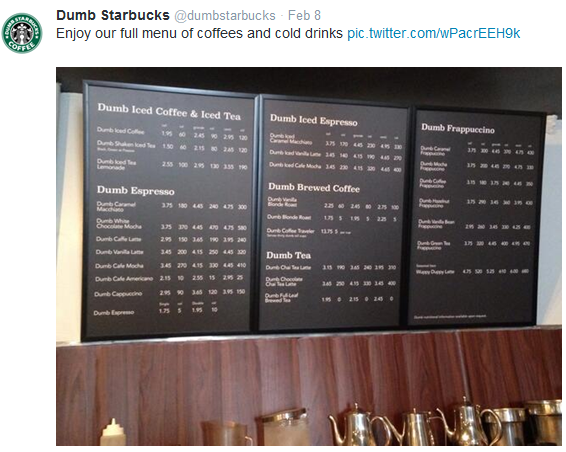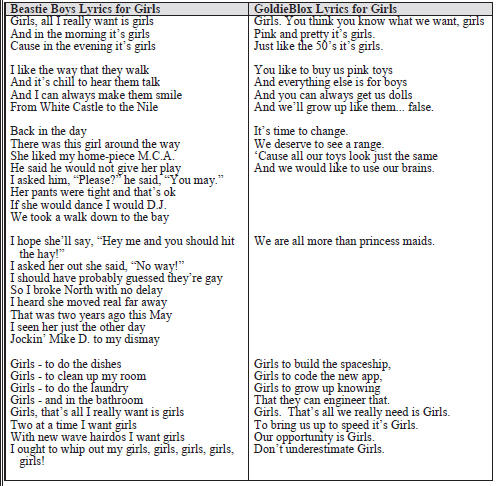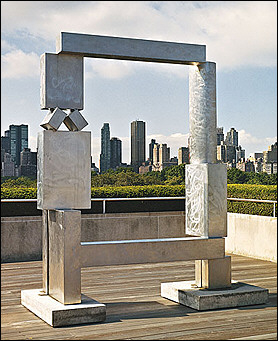As anyone with a computer now knows, the story broke last week of a supposed cache of hundreds of intimate photographs of numerous celebrities, including Kate Upton and Jennifer Lawrence, and Detroit Tigers pitcher Justin Verlander. Over the course of the week, rumors circulated about who, exactly, had them, and whether or where they would be leaked online. The story also raised important questions about privacy, security, and default cloud storage of which many people were simply unaware.
Can Copyright Aid Kate Upton, Jennifer Lawrence, and Other Victims of Celebrity Photo Hack?
Topics: The Showroom, Richard Prince, U.S. Copyright Office, reddit, rights of publicity, Second Circuit, No Delete, Canal Zone, Jennifer Lawrence, Patrick Cariou, Florida, Detroit Tigers, Yes Rasta, Saint Petersburg, Jeff Hamilton, Kate Upton, Cory Allen Contemporary Art, selfie, photo hack, Justin Verlander, XVALA, Copyright, First Amendment, Fair Use, Warehouse Arts District, Art Law Report
“Dumb Starbucks” Epilogue: Comedy Central Airs “Nathan For You” Episode Behind it All, Explores Parody, Commerce, and Visual Art
Readers will recall the strange case of “Dumb Starbucks” earlier this year, which initially seemed to pose the question of whether a coffee shop that transparently used the marks and copyrights of Starbucks could claim fair use as an art gallery. It turned out that the entire performance was just that, a lead up to a Comedy Central series that has since debuted. We are not, of course, television critics, but in addition to being hillarious (and undoubtedly tongue in cheek), the full episode is an interesting platform for questions about the players and entities that can claim fair use to copyrights or trademarks over visual and creative works. In the end, the parody/fair use question could never really be answered, but the coverage the numerous news clips that the show included is a reminder of the difficulty of applying art critical concepts to legal analysis.
Topics: Comedy Central, parody, Nathan for You, Weird Al Yankovic, @dumbstarbucks, Nathan Fielder, Copyright, Starbucks, Twitter, Fair Use
Art Law This Week at the City Bar: “Copyright Fair Use: The Importance of Being Transformative” and “Hot Topics in Art Law 2014”
Looking forward to two great art and law events this week at the New York City Bar, both at 42 West 44th Street. Hope to see many of you there!
Topics: consignment, Cariou v. Prince, Judith A. Bresler, The Importance of Being Transformative, Copyright Fair Use, P.C., Judith Prowda, authentication, Kirkland & Ellis LLP, Dean R. Nicyper, Howard N. Spiegler, Authenticity Issues and Recent Developments, Stacy Lefkowitz, Has Transformative Use Gone Too Far?, Berkeley Center for Law and Technology, Google Books, The Law Applicable to Art Consignments, Garcia v. Google, Restitution, Dale Cendali, Pamela Samuelson, Copyright, Cowan Liebowitz & Latman, Visual Arts and the Law, Berkeley Law School, Judge Denny Chin, Sotheby’s Institute, Fair Use, Richard Dannay, Art Repatriation and Restitution
"Dumb Starbucks" Indeed a Prank, Health Department is Not Amused
As we suspected, the "Dumb Starbucks" store in Los Angeles claiming a right to copy Starbucks's logo and store design by relying on fair use turned out to be a prank after all (bolstered, as I did not realize yesterday by the fact that despite what the store said about selling coffee, they were actually just giving it away). It turns out that Nathan Fielder of Comedy Central was behind the whole thing, for use on his show "Nathan for You." Less funny for him was that yesterday the Los Angeles Board of Health closed the store for distributing food products without the proper licence.
Topics: Nathan for You, art gallery, Nathan Fielder, Dumb Starbucks, Copyright, Starbucks, Fair Use
Is "Dumb Starbucks" an Art Gallery in the Eyes of the Law?
News that a coffee shop had opened in Los Angeles entitled "Dumb Starbucks" has again raised the proper interpretation of fair use under U.S. intellectual property law into the realm of popular culture and commerce. Whereas last year’s Beastie Boys/GoldieBlox dustup (still ongoing) revolved primarily around copyright law, here the potential issue is one of trademark infringement. To stave off accusations of liability, the new enterprise has preemptively labeled itself an "art gallery." Will this hold up? Even Starbucks seems puzzled.
Topics: 505 U.S. 763, parody, Landham Act, Weird Al Yankovic, @dumbstarbucks, Green Day, Bad Starbucks, 17 U.S.C. § 107, 15 U.S.C. § 1115(b)(4), GoldieBlox, Copyright, Dr. Evil, Starbucks, Number Two, Twitter, Two Pesos Inc. v. Taco Cabana Inc., Beastie Boys, Fair Use, Merriam-Webster, Austin Powers
Now who’s rapping like it’s a commercial? The Beastie Boys counterclaim against GoldieBlox Web advertisement
After GoldieBlox announced with great fanfare that it would withdraw its claim seeking a declaratory judgment that its use in a video of the Beastie Boys song “Girls” was a fair use under the Copyright Act, many assumed that was the end of it and that the only point for discussion was GoldieBlox’s motivation. As we pointed out at the time, however, that “offer” was not accompanied by a dismissal of the already filed lawsuit. Presumably, the Beastie Boys either declined, or failed to respond, because the band has now answered the Complaint and filed counterclaims, alleging copyright and trademark infringement.
Topics: Cariou v. Prince, Copyright Act, Campbell v. Acuff Rose Music Inc., Green Day, Michael Diamond, Adam Yauch, “Girls”, GoldieBlox, Copyright, Adam Horowitz, Beastie Boys, Fair Use
GoldieBlox Declares a Truce with the Beastie Boys, What was That All About?
After the skirmish over whether GoldieBlox's video featuring the melody and parodied lyrics of "Girls" by the Beastie Boys was fair use or infringement, the company abruptly altered the video in question on its website. The same video is now accompanied by different music. The company also issued the following statement on its blog:
Topics: “Girls”, GoldieBlox, Copyright, Beastie Boys, Fair Use
GoldieBlox Parodies the Beastie Boys and “Girls”—Fair Use is Clear, What About Queen’s “Bohemian Rhapsody”?
Coverage has exploded this week of a dispute between the Beastie Boys and a company called “GoldieBlox,” over the latter’s use of the song “Girls” in a video encouraging engineering and structural play toys for girls. Despite coverage focusing on whether Goldie Box copied the Beastie Boys’ song (which is undisputed, really, and thus beside the the point in this case), the fair use of the earlier song is clear: the new version is a parody of a leering anthem, intended to subvert inherent sexism into a message of empowerment. Curiously, however, the fair use in another video on the company’s site using the Queen song “Bohemian Rhapsody” seems less clear, but so far unnoticed.
Topics: License to Ill, Copyright Act, Campbell v. Acuff-Rose Music, Queen, Digital Millennium Copyright Act, DMCA, Adam Yauch, “Bohemian Rhapsody”, “Girls”, GoldieBlox, Copyright, MCA, Beastie Boys, Fair Use
Lauren Clay, the David Smith Estate, David Dodde, and Fair Use: Are We Learning Anything?
A pair of recent disputes over sculpture, fair use and moral rights highlights the ongoing concern that Prince v. Cariou has made things worse, not better. The first concerns the estate of sculptor David Smith, and sculptor Lauren Clay. As Art in America put it, “Clay's works replicate the shapes of Smith's large metal ‘Cubi’ sculptures at tabletop scale in materials such as paper, and with faux wood grain or marble finishes.’ The Smith estate, through its reprsentatives at VAGA, took issue with this as a violation of Smith’s copyright. During the discussion, VAGA apparently proposed an agreement in which Clay would agree either not to sell the works, or only to display them with a disclaimer that the works were not authorized.
Topics: Donn Zaretsky, Yellow Submarine, Art in America, La Grande Vitesse, Prince v. Cariou, the Donald Smith Estate, Visual Artists Rights Act, Sergio Muñoz Sarmiento, VARA, Alexander Calder, Copyright, Fair Use, Lauren Clay, David Dodde
Free Speech, Fair Use, and Meaning—Recapping An Evening of Copyright and the Visual Arts at the Sotheby’s Institute
Last night was a fascinating evening at the Sotheby’s Institute in New York, where Judith Prowda was celebrating the launch of her new book Visual Arts and the Law (Lund Humphries 2013). The book, not at all incidentally, is a must-have.
Topics: free speech, Richard Prince, Amy Adler, Campbell v. Acuff-Rose Music, Judith Prowda, Canal Zone, Patrick Cariou, Lund Humphries, Boies Schiller, American Society of Media Photographers, Yes Rasta, Kirkland & Ellis, NYU Law School, Events, Picture Archive Council of America, Shepard Fairey, Dale Cendali, Copyright, Hope, Visual Arts and the Law, transformative, First Amendment, Associated Press, Sotheby’s Institute, Fair Use





